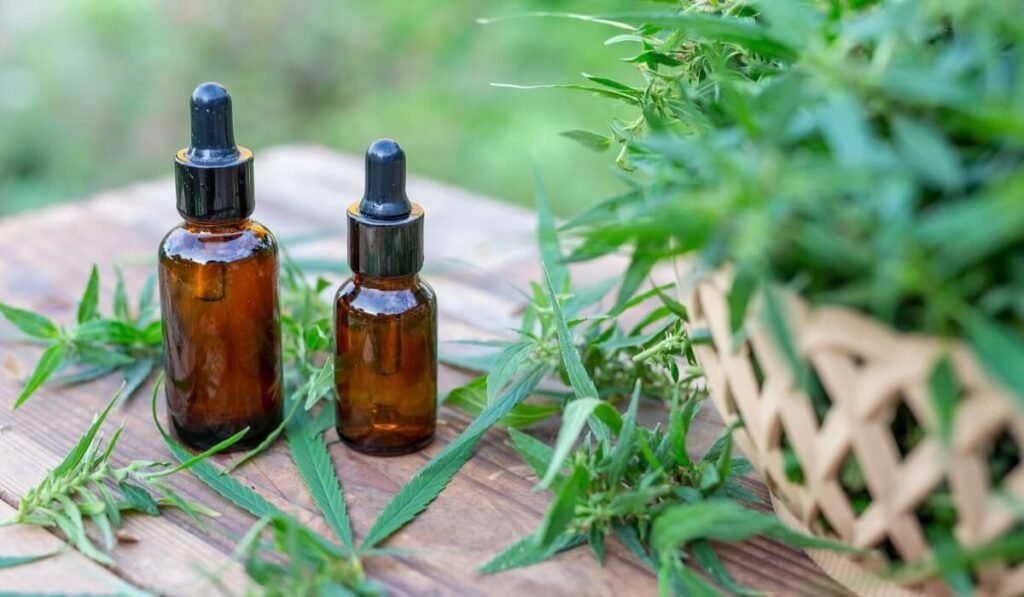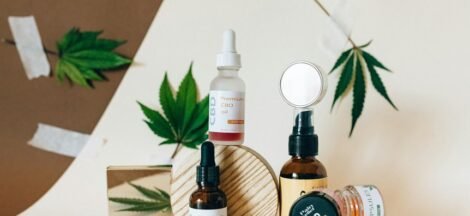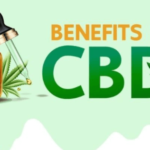The popularity of Cannabidiol (CBD) continues to rise. An estimated 60% of American Adults regularly use or have tried CBD products in a variety of forms such as CBD syrups, CBD gummies, topical CBD, etc.
Cannabidiol is a type of cannabinoid found in the cannabis sativa plant. It is extracted from hemp plants. CBD has gained attention for its therapeutic properties, including aiding in pain management, anxiety relief, and improving sleep quality. However, apart from this positive aspect, a lingering concern remains: Can you get addicted to CBD? Or can someone develop a CBD addiction?
CBD contains 0.3% of THC (Tetrahydrocannabinol), the psychoactive element associated with marijuana’s euphoric sensation, studies affirm that it is not addictive. The World Health Organization states that CBD exhibits no signs of abuse or dependence potential.
Today, in this blog, we’ll discuss the complex relationship between CBD and addiction. We’ll also explore the potential benefits of CBD in addiction recovery, and how it can help mitigate withdrawal cravings.
What Is Addiction?
According to the American Society of Addiction Medicine (ASAM), Addiction is a treatable, chronic medical disease involving complex interactions among brain circuits, genetics, the environment, and an individual’s life experiences.
Addiction is a complex and chronic condition characterized by the following behaviors:
- Compulsive Behavior: Repeated engagement despite negative consequences.
- Psychological Craving: Strong urge or desire for a substance or behavior.
- Loss of Control: Inability to regulate use or engagement.
Key Signs of Addiction include:
- Increased Tolerance: Needing more over time for the same effect.
- Withdrawal Symptoms: Physical or emotional distress without the substance or behavior.
- Neglect of Responsibilities: Prioritizing addiction over daily obligations.
- Isolation: Withdrawing from social activities or relationships.
- Continued Use Despite Consequences: Ignoring negative effects on health, work, or relationships.
Addiction can involve substances (e.g., drugs, alcohol) or behaviors (e.g., gambling, gaming). It fundamentally alters the brain’s reward system and redirects its focus on the addictive element.
This chronic condition requires inclusive treatment. The treatment methods include therapy, support groups, and, in certain cases, medication. However, despite periods of abstinence, the risk of relapse remains elevated due to the persistent nature of addiction.
Can You Get Addicted to CBD Products?
The simple answer is no. CBD or cannabidiol isn’t responsible for addiction. Cannabidiol is a compound found in marijuana and hemp. Unlike its psychoactive counterpart, THC, CBD doesn’t produce a high.
Research and experts confirm that CBD isn’t addictive. Even a small study in 2016 showed that CBD had more of a placebo effect and didn’t affect heart rate or cognitive function.
However, you should remember that you’ll find a lot of CBD products in online CBD store that have trace amounts of THC. Products made from hemp-derived CBD must, according to federal law, have less than 0.3% THC.
Nevertheless, studies have shown that 70% of CBD products have much higher THC contents than what is indicated on their labels.
THC is addictive, but CBD is not. Research indicates that users of THC may grow used to it and experience withdrawal symptoms. Those who consume high-THC cannabis strains are more prone to develop a physical dependence on THC.
Can You Build a Tolerance to CBD?
Yes, it’s possible, but don’t let that alarm you. Like with many substances, if you use CBD regularly over time, your body might become accustomed to its effects.
This could mean needing a slightly higher dose to experience the same relief. But it’s worth noting that not everyone develops tolerance, and if you do, taking a short break from CBD can help reset your body’s response.
How CBD May Help to Treat Addiction?
Surprisingly, CBD can help in addiction recovery. Studies suggest it might lower the likelihood of developing addictive behaviors related to cocaine, methamphetamine, cannabis, and nicotine.
It can also help ease withdrawal symptoms which makes the path to sobriety. This natural compound promotes sleep improvement and can help lift your mood during a tough time.
CBD Can Mitigate Withdrawal Symptoms
A 2019 study on “Cannabidiol Treatment Might Promote Resilience to Cocaine and Methamphetamine Use Disorder” published by MDPI stated that Cannabidiol may lessen impulsivity, paranoia, drug cravings, and withdrawal symptoms brought on by a crack cocaine addiction.
However, much research needs to be done in this area. But so far, the beneficiary properties of CBD have shown its positive effects on drug users by treating the withdrawal symptoms.
So, what are the common withdrawal symptoms?
Find the common types of withdrawal symptoms below (Via Health Direct):
- Sleep problems
- Cravings
- irritability
- changing moods
- depression
- anxiety
- aches and pains
- cravings
- tiredness
- seeing things that are not there (hallucinations)
- nausea and vomiting
- diarrhea
- sweating
- shaking
CBD can help with most of the common withdrawal symptoms like anxiety and stress, pain relief, cravings for drugs, depression, insomnia, and neuroprotection.
Here’s how CBD can help with withdrawal symptoms:
1. CBD Reduce Drug Cravings: CBD may help to lessen cravings for addictive substances, such as nicotine, opioids, or alcohol. Some studies suggest that it can influence the brain’s reward system and reduce desire for the substance.
2. Anxiety and Stress: Anxiolytic (Anxiety-reducing) properties of CBD may help an individual cope with anxiety and stress often associated with addiction withdrawal. Also, this can help to prevent relapse.
3. Inflammation: Inflammation can be acute or chronic in drug users depending on the addiction stage they are in. CBD has anti-inflammatory properties which could potentially mitigate some of the inflammation-related aspects of addiction.
4. Neuroprotection: Long-term substance abuse may cause neurological damage. CBD may have neuroprotective properties that may assist in repairing this neurological damage.

Tips for Avoiding CBD Addiction
Even though CBD isn’t addictive, you should make sure to use it responsibly.
Here are some tips to take the best action to avoid any unwanted effects and CBD dependency:
- Buy from Reputable Sources: Make sure the CBD products you’re purchasing come from trustworthy sources with accurate labeling.
- Start with a Low Dose: Begin with a small amount and gradually increase if needed.
- Monitor for Changes: Pay attention to how your body reacts to CBD and adjust accordingly.
- Seek Professional Advice: If you have concerns or are on other medications, consult a healthcare provider.
Frequently Asked Questions (FAQs)
Here are some frequently asked queries asked by searchers regarding whether you can get addicted to CBD or not. We’ve answered these questions to provide you with more insight.
Is CBD Addictive?
No, CBD isn’t addictive. CBD is one type of cannabinoid found in the cannabis plant. World Health Organization (WHO) stated that “evidence from well-controlled human experimental research indicates that CBD is not associated with abuse potential.” Besides, CBD doesn’t have any psychoactive properties like other controlled substances. THC, on the other hand, found in the same plant can be addictive if consumed on a regular basis.
What are the possible side effects of CBD?
While CBD is generally well-tolerated, like anything, it’s important to be aware of potential side effects. These can include dry mouth, diarrhea, reduced appetite, drowsiness, fatigue, and changes in mood. It’s always a good idea to start with a low dose and monitor how your body responds.
Can you get a withdrawal from CBD?
Cannabidiol (CBD) is generally considered to have a low potential for withdrawal symptoms and addiction. However, it’s vital to distinguish between CBD and THC (psychoactive compound). Withdrawal typically occurs when a person discontinues a substance that their body has become physically dependent on (e.g., drugs, alcohol, tobacco). There is little evidence that suggests that it may show some withdrawal symptoms when used on its own. Therefore, always make sure to talk to the healthcare professional before taking CBD.
The Bottom Line
So, can you get addicted to CBD? Not really. Oppositely, CBD, with its non-addictive nature, offers hope in the path of addiction recovery. It can be a supportive medicine, help to ease withdrawal symptoms, and promote a balanced state of mind. However, It’s important to use any form of CBD products responsibly and seek guidance from health experts if needed.





 Unlocking the Potential of CBD for Sleep: Natural Remedies for Restful Nights
Unlocking the Potential of CBD for Sleep: Natural Remedies for Restful Nights